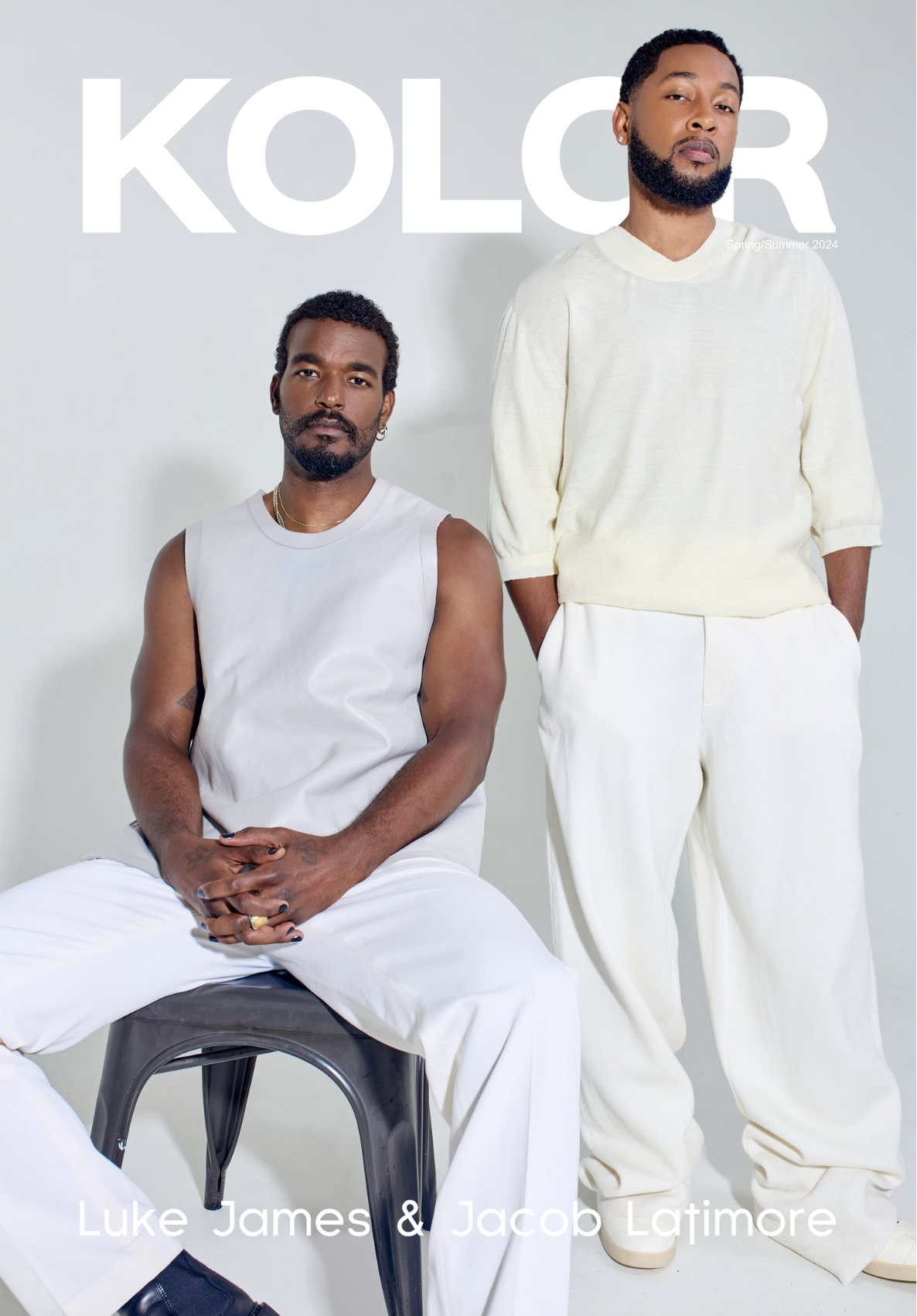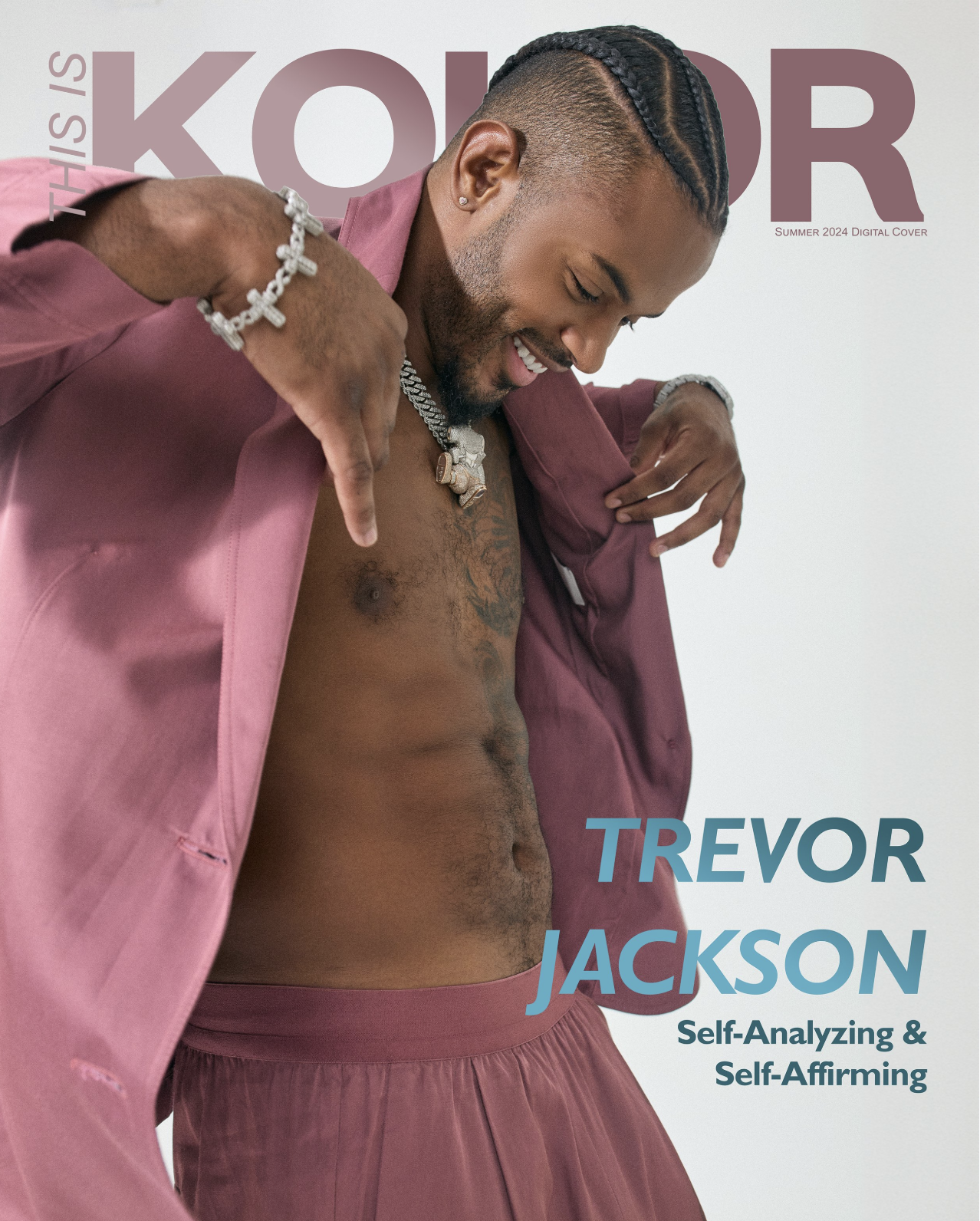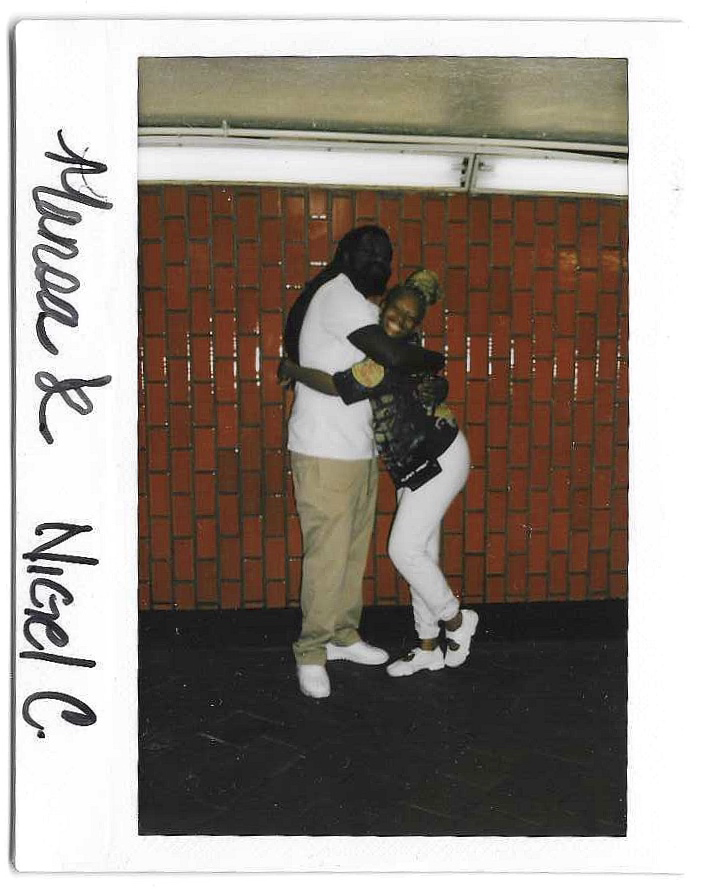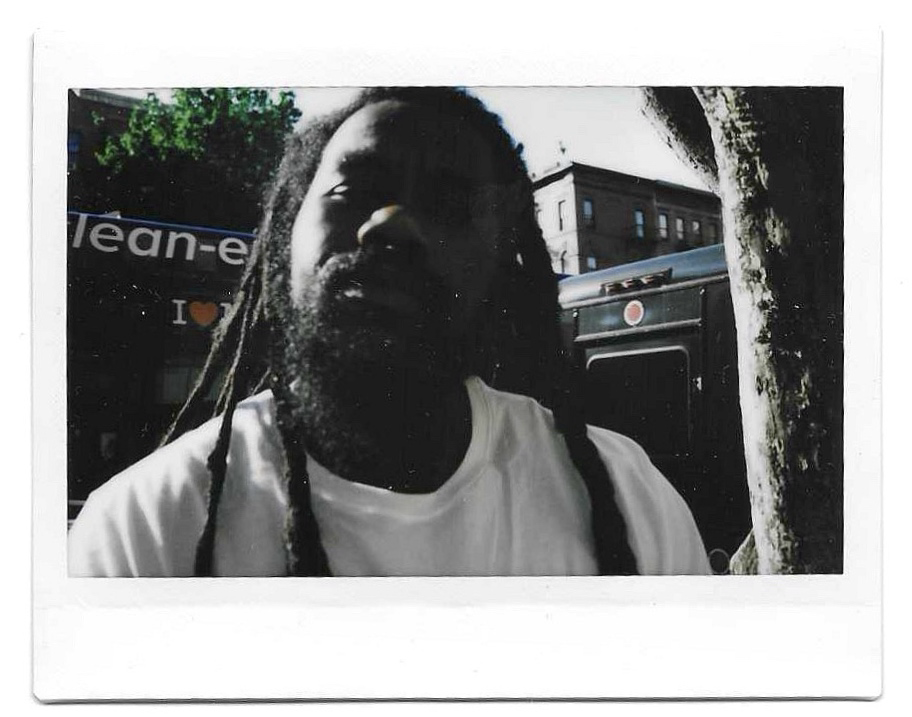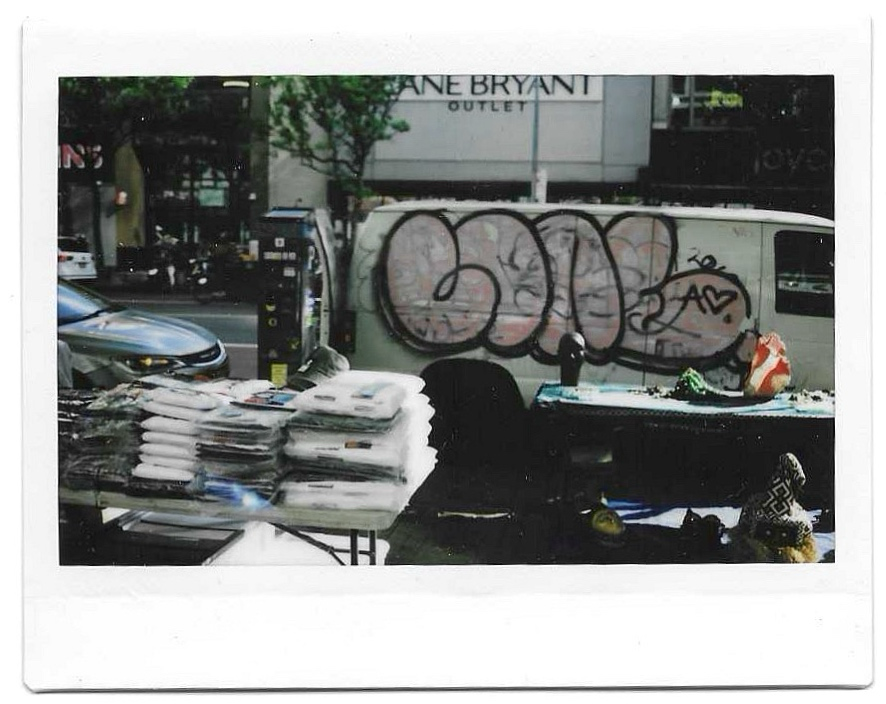The Black Editorial ™
The Black Editorial ™
Nigel Isaiah
The Visionary Behind Kolor Magazine
March 2025
Nigel Isaiah, captured in the heart of Harlem, where style meets storytelling.
The streets of Harlem hum with energy, a blend of history and modernity woven into the rhythm of daily life. As Nigel and I stroll through 125th Street, dodging hurried commuters and the occasional street performer, the conversation flows effortlessly. The sounds of groups from all cultures and the uncles looking to sell socks and tee shirts momentarily separate us. This is Harlem—alive, unfiltered, and the perfect setting for a conversation about fashion, culture, and legacy.
The Creative Journey & Styling Philosophy
Fashion is often described as a reflection of the times—how has your styling evolved to capture the essence of different cultural shifts?
“Our culture moves so fast now that I believe it’s more important to take whatever time you need to hone your vision so that the cultural shifts adapt to you. There’s always space for the most unique voices and talented minds in every cultural shift.”
As we cross Malcolm X Blvd, we are distracted by Sylvia's Restaurant, a historically Black-owned restaurant that has transitioned through the decades. Nigel continues, pausing briefly.
What is one fashion rule or industry standard that you intentionally break, and why?
“Owning a fashion magazine founded on Black and Brown men and their stories is a non-industry standard. I wouldn’t consider it rebellion, though—it’s simply being the change I wish to see in the fashion industry.”
Kolor Magazine & The Business of Fashion
Kolor Magazine isn’t just about fashion—it’s about storytelling, identity, and culture. What stories are you most passionate about telling through the platform, and why?
“The stories I’m most passionate about telling through Kolor Magazine are those from Black men and their life journeys. Fashion spaces that focus on Black men are still rare. As a Black man, it’s a privilege to follow in the path of past publications like Code and Ebony Man.”
We continue our conversation as we walk to 128th Street, admiring how quiet one street is compared to another, with decorated stoops and fully bloomed trees.
In an era where social media has democratized fashion influence, how do you differentiate editorial storytelling from fleeting digital trends?
“Offering a print book for sale is how I differentiate editorial storytelling from fleeting digital trends. Telling stories in print form isn’t dead. While we publish a lot of digital content, having a book you can hold is an asset for us.”
Industry & Representation
As we walk back up to 125th street we dive into the industry and representation within the fashion industry and the power mentorship can have for the Black diaspora.
The fashion industry has long been criticized for its gatekeeping—what specific barriers do you believe still exist for underrepresented creatives, and how can they be dismantled?
“Money is always a barrier. Having the funds or the right connections to compete is the name of the game. I’m not sure how to dismantle that, but if you’re creating a space, building a community (which takes time) will combat that. Brands love a space where a community exists.”
If you had the power to redefine fashion media’s relationship with Black culture, what would that look like?
“I would love to see some mentorship between fashion media and Black-owned media that focuses on fashion—similar to how we now have designer mentorships connecting Black designers to mainstream audiences.”
Nigel Isaiah surrounded by the trees and blooms of Harlem, New York.
Kolor Magazine Issue One: The Inaugural Issue | Luke James & Jacob Latimore Spring/Summer 2024
Kolor Magazine Digital Cover Trevor Jackson Summer 2024
Cultural Influence & Style Identity
Styling is more than clothing—it’s an extension of self. How do you guide individuals in discovering their own style identity rather than just following trends?
“I don’t! Laughs I’m not the friend who wants to help you pick out an outfit or help you shop. With my work, I take a keep-it-real approach to the talent I style for Kolor Magazine. I’ll share with them what looks I would love for them to wear, but I want them to spend some personal time with the clothes so they can tell me what speaks to them. We go on that fashion journey together.”
What’s a fashion moment—whether from history or your own work—that you believe fundamentally changed the way we see style?
“The sustainability movement has changed how people engage with the way our clothes are made—leather, fur, exotic skins, precious stones—the brands that design with these materials, and the people who buy and wear them.”
Legacy & Future Vision
We reach the famed Apollo Theater, its neon sign glowing against the sky. We gesture toward it, admiring the legacy it holds within the Black community.
If your body of work were placed in a time capsule to be opened 100 years from now, what would you want future generations to understand about your impact on fashion?
“I would want future generations to see that Black-owned spaces existed where our stories were told through the lens of luxury fashion—and that it all started from a bedroom in Harlem.”
How do you personally define success in an industry that thrives on reinvention, and what does fulfillment look like for you beyond accolades and recognition?
“Success for me is pleasing God through my work and achieving the goals I believed I would only accomplish if I worked for a media publishing company—through my Black-owned platform. Styling celebrities, attending international fashion weeks, and speaking at high school career days are just some of my proudest moments.”
As we wrap up, the city continues to move around us, as relentless and vibrant as the creative spirit that fuels Nigel’s work. From Harlem to the global stage, his journey is a testament to resilience, vision, and an unwavering commitment to authenticity in fashion media. As Kolor Magazine continues to flourish, its pages remain a vibrant archive of Black culture and luxury fashion—proof that true storytelling transcends fleeting trends and leaves a lasting imprint on the industry.
Nigel Isaiah
Nigel Isaiah, framed by the vibrant energy of Harlem, where fashion and culture intersect.
unmuted
Unmuted is a dynamic space where creativity speaks without boundaries. This section spotlights underrepresented artists, visionaries, and thought leaders through engaging articles, interviews, and behind-the-scenes insights. Here, stories unfold, voices amplify, and artistry takes center stage.








